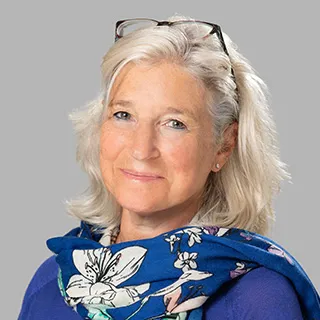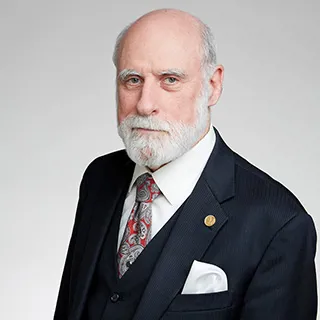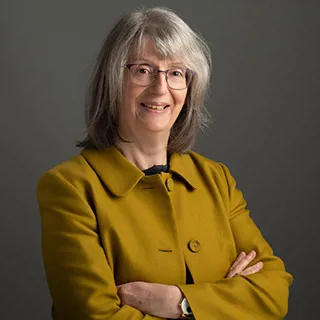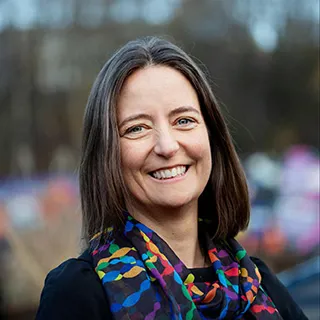Plenary Speakers

Professor Polina Bayvel
Talk title: Optical networks – seeing through the cloud
Professor Polina Bayvel is the Head of the Optical Networks Group (Department of Electronic & Electrical Engineering), UCL, a research group she set up in 1994. Her research interests are in the area of optical communications and networks on different time- and length scales (from trans-oceanic distances to intra- and inter-data centre communications and routing.
This includes the analysis and implementation of intelligent optical networks, wavelength routing, high-speed optical transmission, and the study and mitigation of optical fibre nonlinearities.
Following her PhD, she worked as a systems engineer in the STC Submarine Systems, Greenwich (now Alcatel Submarine Networks) on the first amplified optical transmission and in Nortel (Harlow Labs) on optical network planning.
In 1994 she received a Royal Society University Research fellowship and moved to UCL to set up ONG, the first academic systems engineering group in optical networks.
She is a Fellow of the Royal Society, Royal Academy of Engineering, IEEE and Optica. She was awarded CBE (Commander of the Order of the British Empire) in the 2017 New Year's Honours List, for services to engineering and in 2021 received the Thomas Young Medal of the Institute of Physics - the first woman and the first UCL recipient. She is the first woman since 1800 to have received the Royal Society Rumford Medal.
Author/co-author of more than 500 refereed journal and conference papers, she has led the UK EPSRC Programme Grant UNLOC (2012-2018), focused on unlocking - and maximising - the capacity of optical fibre communications and currently leads the EPSRC Programme Grant TRANSNET (2018-2024): https://gow.epsrc.ukri.org/NGBOViewGrant.aspx?GrantRef=EP/R035342/1 focused to transforming optical networks for the cloud through the combination of machine learning and intelligent transceivers.
She is a vocal advocate for the importance and need for ubiquitous, secure, low-delay and high-capacity communications infrastructure to support the digital economy and new applications with the potential to transform people’s lives.
This talk is dedicated to the memory of Professor John E Midwinter, one of the founders of ECOC and a pioneer of optical fibre communications.

Vinton G. Cerf
Talk title: On the role of optical communication in terrestrial and extra-terrestrial networks
Vinton G. Cerf is vice president and Chief Internet Evangelist for Google. He contributes to global policy development and continued spread of the Internet. Widely known as one of the "Fathers of the Internet," Cerf is the co-designer of the TCP/IP protocols and the architecture of the Internet. He has served in executive positions at MCI, the Corporation for National Research Initiatives and the Defense Advanced Research Projects Agency and on the faculty of Stanford University.
He currently serves as Past President of the Association for Computing Machinery, chairman of the American Registry for Internet Numbers (ARIN) and completed a term as Chairman of the Visiting Committee on Advanced Technology for the US National Institute of Standards and Technology. President Obama appointed him to the National Science Board in 2012.
Vint Cerf is a recipient of numerous awards and commendations in connection with his work on the Internet, including the US Presidential Medal of Freedom, US National Medal of Technology, the Queen Elizabeth Prize for Engineering, the Prince of Asturias Award, the Tunisian National Medal of Science, the Japan Prize, the Charles Stark Draper award, the ACM Turing Award, Officer of the Legion d’Honneur and 29 honorary degrees. In December 1994, People magazine identified Cerf as one of that year's "25 Most Intriguing People."

Colin Lees
Talk title: Building the 25 Million - the story of the Openreach fibre build
Colin is a vastly experienced CTIO with a proven track record of driving and implementing innovative digital, IT and network technology strategies and large-scale transformation programmes. For the last 5 years, Colin has been the Openreach CTIO – designing, building, and delivering the network & IT solutions that have underpinned one of the largest fibre builds in the UK. That build currently stands at over 11 million premises and is on track to hit 25 million by Christmas 2026 – making it one of the fastest FTTP builds in Europe.
Prior to that, Colin was the CTIO of the BT Consumer and BT Business divisions driving IT transformation & launching a range of new products – playing a key role in the launch of BT Sport and the first BT Business hub with fully integrated fixed & mobile back haul.
Colin is an engineer by trade with a background in software and network engineering. He started as a junior software engineer at 16 years old writing the software for dial-up broadband and has over 25 years’ experience working on all aspects of the UK's telecoms infrastructure.
Outreach speaker

Gillian Wright
Talk title: The James Webb Space Telescope
Prof. Gillian Wright, CBE, MBE, FRSE, is the Director of STFC’s UK Astronomy Technology Centre and a visiting professor of the Institute for Astronomy, University of Edinburgh.
She is a graduate of the University of Glasgow and obtained her PhD in physics from Imperial College. She was a staff scientist at the United Kingdom InfraRed Telescope in Hawaii and then Head of Instrumentation from 1995 until 1997, when she returned to the UK to join the newly formed UK Astronomy Technology Centre UK ATC. She has 30 years’ experience of ground and space-based instrumentation for astronomy having provided scientific, technical and management leadership for projects ranging from observatory management software, through critical mechanism sub-systems, to entire flight instruments.
Her astronomical research interests are in the evolution of galaxies. Professor Wright is European Principal Investigator of the Mid-Infrared Instrument (MIRI) on JWST, leading a European consortium that developed the instrument in partnership with JPL and the University of Arizona. Alongside her research work, she is a strong supporter of public engagement in astronomy.
Current work at the UK ATC includes instrumentation and technology development for the European Extremely large Telescope, the MOONS instrument for the European Southern Observatory, Atacama Large Millimeter Array, the LISA mission, and the Square Kilometer Array as well as projects that apply techniques developed for astronomy to other areas such as environmental monitoring and health.
As the European PI for the James Webb Space Telescope Mid-IR Instrument (MIRI), Gillian brings UK leadership of a key scientific capability for this NASA flagship Mission. The Higgs Centre for Innovation facility opened in May 2018 and is run in partnership with the University of Edinburgh. The Centre applies business incubation best practice to enable start-ups to translate fundamental research and capabilities in data intensive science and space technology into wider commercial impact.
Professor Wright was awarded a CBE for Services to Astronomy in 2023 and an MBE for Services to Science in 2006 and is a member of a number of National and International Advisory Panels for astronomy and astronomical instrumentation. She was elected a Fellow of the Royal Society of Edinburgh, Scotland’s National Academy, in 2014.
Dinner Speaker

Carol Monaghan
Talk title: The New Age of Enlightenment
Carol Monaghan was first elected as the Scottish National Party MP for Glasgow North West in 2015, and has served as a MP continuously since then.
Prior to her Parliamentary career, Carol gained an undergraduate degree in Laser Physics and Optoelectronics at Strathclyde University, latterly entering the teaching profession and becoming Head of Physics and Head of Science at Hyndland Secondary School in Glasgow.
Carol also spent two years as a lecturer at Glasgow University, as well as being an SQA consultant responsible for developing physics qualifications at a national level.
Carol is the only Scottish MP on the House of Commons Science and Technology Select Committee, and she serves as Chair of the APPG on Photonics and Quantum.
She is currently the SNP’s Westminster Spokesperson for Education, Armed Forces and Veterans.
Platinum sponsor

Huawei
Founded in 1987, Huawei is a leading global provider of information and communications technology (ICT) infrastructure and smart devices. We have 207,000 employees and operate in over 170 countries and regions, serving more than three billion people around the world. We are committed to bringing digital to every person, home and organization for a fully connected, intelligent world.
